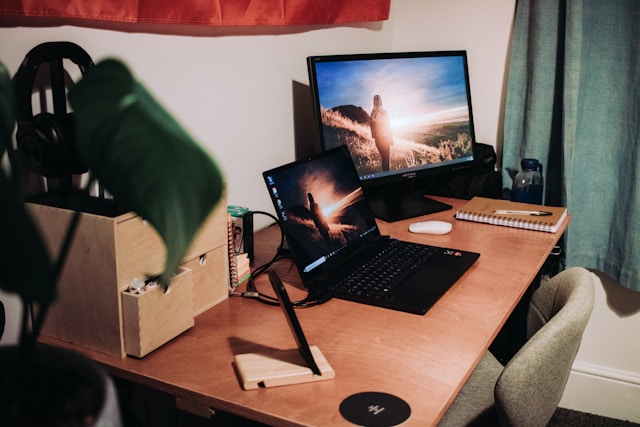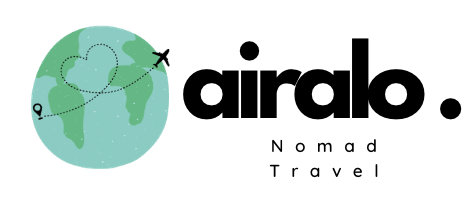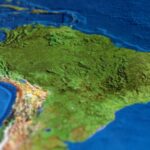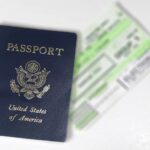
With the popularity of remote working and digital life, more and more countries have launched visa programs for digital nomads. These visas often facilitate remote workers who want to work, live and travel abroad, attracting them to bring vitality to the local economy and culture. Here’s a look at some of the easiest countries to get a digital nomad visa from, including visa requirements, application process and key benefits.
1. Portugal: D7 visa
Visa introduction:
Portugal’s D7 visa, often referred to as a passive income visa, is a long-term residence visa designed for applicants with a stable source of income. While the visa was originally tailored for retirees and financially independent people (such as those with rental income or pensions), its flexibility makes it equally suitable for digital nomads. By providing proof of income and meeting relevant conditions, remote workers can also successfully apply and enjoy Portugal’s high quality of life and the convenience of entering the Schengen Area.
Application requirements (detailed description):
- minimum income requirement:
- Portugal stipulates that applicants’ monthly income must be at least€760(approximately RMB6,000 yuan), based on the Portuguese minimum wage level.
- Practical advice: To improve the success rate, it is recommended that applicants provide proof of higher monthly income, e.g.€1,000 to €1,500 or above. Proof of income can include the following types:
- Pay stub (must be accompanied by remote work contract or proof of employment).
- Proof of rental income, such as a property rental contract.
- For investment income or bank deposit interest, bank statements must be provided.
- Other sustainable sources of income.
- health insurance requirements:
- Proof of health insurance covering Portugal and the entire Schengen Area must be provided. The policy is usually required to cover emergency medical and hospitalization expenses, with a minimum coverage of€30,000。
- Select suggestions: You can choose international health insurance. Some insurance companies provide insurance plans specially designed for visa applications to ensure compliance with requirements. The policy must clearly state the coverage area, insured amount and insurance period (at least one year is recommended).
- Proof of accommodation:
- Applicants need to prove that they have arranged legal residence in Portugal, including:
- Rental contract (recommended for at least 6 months or more than 1 year).
- If you have purchased a house, you can provide a property purchase agreement or proof of title.
- If you have not yet rented or purchased a house, you can provide an invitation letter from a Portuguese resident promising to provide a place for the applicant to live.
- suggestion: Choosing a stable residential address can improve the success rate of visa approval. Some applicants even demonstrate stable living arrangements through long-term rental.
- Applicants need to prove that they have arranged legal residence in Portugal, including:
- No criminal record certificate:
- It is necessary to provide a certificate of no criminal record in the country where you are located in the past 5 years, which must be notarized and authenticated (usually dual authentication or embassy authentication).
- Proof of funds:
- The bank account balance must prove that the applicant has sufficient financial ability to pay for living expenses during the validity period of the visa. It is recommended that the account balance covers at least12 months living expenses, that is, €10,000 to €15,000 (approximately RMB 75,000 to 110,000 yuan).
- Other documents:
- Passport valid for at least 6 months.
- Passport size color photos (usually 2-3 required).
- Complete the D7 visa application form.
Advantages (detailed description):
- Easy access to the Schengen area:
- With a D7 visa, applicants can freely enter and exit the 26 Schengen countries without a visa or additional visa. This gives digital nomads who want to work or travel in Europe great flexibility to explore multiple countries without having to repeat visa procedures.
- Medical benefit coverage:
- Visa holders and their family members can apply to join the Portuguese Public Health System (Serviço Nacional de Saúde, SNS) after successfully obtaining a residence permit. The system is known for its low-cost and high-quality medical services, especially suitable for applicants who need long-term residence and medical security.
- Long-term residence and citizenship application opportunities:
- After five years of continuous residence on a D7 visa, the applicant is eligible to apply for permanent residence in Portugal. Permanent residence allows the holder to live and work in Portugal indefinitely while maintaining current nationality.
- After meeting the language requirements (A2 level Portuguese proficiency) and basic residence requirements, you can further apply for Portuguese citizenship. After obtaining a Portuguese passport, holders can enter more than 180 countries and regions without a visa, enjoying great global travel convenience.
- Applicable to family members:
- The D7 visa allows applicants to apply with their immediate family members, including spouses and minor children. This allows digital nomads to not only enjoy life in Portugal on their own, but also to provide stable housing and welfare security for their families.
Visa application process:
- Preliminary preparation:
- Make sure all documents are complete and notarized and authenticated (especially the criminal record certificate).
- Sign health insurance and accommodation contracts.
- Application submission:
- Submit a D7 visa application to the Portuguese embassy or consulate in the host country and pay the application fee (usually approximately€90 to €100)。
- Waiting for approval:
- The general approval time is60 to 90 days, depending on the completeness of the materials and the efficiency of the consulate.
- Immigration and residence card application:
- After the visa is approved, the applicant can enter Portugal and apply for a residence card (Residência Permissão).
- The initial validity period of the residence card is1 year, which can be extended to2 years, you can apply for permanent residence after a total of 5 years.
Suitable for the crowd:
- Digital nomads with a stable source of income who want to live in Europe.
- Individuals and families who plan to develop in Europe for a long time and take advantage of the visa-free Schengen area to travel or work.
- Applicants who want to enjoy high-quality medical services, quality education and a safe living environment.
2. Estonia: Digital Nomad Visa
Visa introduction:
Estonia was the first country in the world to launch a visa program specifically for digital nomads, offering remote workers the opportunity to legally live and work as of 2020. As a pioneer in e-government and digital society, Estonia has attracted a large number of technology workers and entrepreneurs who want to enjoy a highly digital environment. With the digital nomad visa, applicants can stay in Estonia for up to12 months, and feel free to explore other Schengen countries in Europe during this time.
Application requirements (more detailed):
- minimum income requirement:
- Applicants need to prove that their monthly income is at least€3,500(approximately RMB27,000 yuan), this amount is higher than the visa income requirements of many European countries.
- Specific sources of income: Income can come from the following ways:
- Working remotely for a non-Estonian company or employer (employment contract and salary records for the last 6 months are required).
- Own and operate your own remote business (a business license or proof of incorporation is required, and business income must meet minimum requirements).
- Freelancers need to submit specific client contracts and bank transaction statements to prove ongoing project cooperation and income sources.
- health insurance requirements:
- Provide proof of health insurance covering the entire Schengen area. The insurance must cover medical expenses, emergency rescue and hospitalization. The minimum insurance amount is€30,000。
- Additional suggestions: You can choose an Estonian local or international insurance company to ensure that the policy period covers the entire visa validity period (usually 1 year).
- Proof of work:
- Applicants need to prove that their form of employment is remote working and that they have a clear business relationship with a company, client or enterprise outside Estonia. This includes:
- Employment contract or statement of self-employment (clearly stating that the nature of the work is remote).
- A written letter from the employer confirming that the applicant’s work location is not subject to geographic restrictions.
- Company business license or registration information (for business owners).
- Applicants need to prove that their form of employment is remote working and that they have a clear business relationship with a company, client or enterprise outside Estonia. This includes:
- Other documents:
- A valid passport, valid for at least 6 months beyond the application end date.
- Complete the Digital Nomad Visa Application Form (submit online).
- recently 6 months of bank statements, proving that the income is stable and meets the minimum income standards.
- Certificate of no criminal record (subject to notarization and certification).
Advantages (more detailed):
- Online Transparency Program:
- The application process in Estonia is highly transparent and all steps can be completed online. Applicants do not need to go through complicated interviews or mailing paper documents. They can submit applications and track the approval progress through the Estonian government’s official website. The typical processing time is30 days。
- digital lifestyle:
- Estonia is known for its advanced e-government system. From tax declarations to medical appointments, almost all services can be completed online, greatly improving the efficiency of life.
- As the launch country of the world’s first electronic residency (e-Residency) program, Estonia is particularly friendly to technology-driven workers and is suitable for digital nomads engaged in programming, design, data analysis and other jobs.
- Quality network infrastructure:
- Estonia’s Internet coverage is close to 100%, with high-speed network connections available across the country. Many cities offer free public Wi-Fi, suitable for remote workers who need stable network support.
- low cost of living:
- Although the cost of living in Tallinn, the capital of Estonia, is lower than that of Western European countries, its quality of life is not inferior in any way.
- housing costs: One-bedroom apartment rents in the city center for approx.€500 to €800, suburban rents are lower.
- daily expenses: Average monthly living expenses (excluding rent) are approximately€600 to €900, covering food, transportation and entertainment expenses.
- Although the cost of living in Tallinn, the capital of Estonia, is lower than that of Western European countries, its quality of life is not inferior in any way.
- Schengen area access:
- With a digital nomad visa, applicants can not only legally reside in Estonia, but also enter 26 Schengen countries without a visa, and can stay up to 90 days in every 180 days. This provides great convenience for digital nomads who want to explore Europe.
- Encourage entrepreneurial environment:
- The Estonian government actively encourages innovation and entrepreneurship, with low tax rates and a simple company registration process. Digital nomads can also choose to apply for electronic residency (e-Residency), which makes it easier to open bank accounts, set up companies and manage global businesses online.
Visa application process:
- Preliminary preparation:
- Have all necessary documents ready, including proof of employment, health insurance, income records and bank statements.
- Ensure that all documents comply with Estonian government regulations and have notarization and legalization completed (if required).
- Apply online:
- Log in to the official website of the Ministry of Foreign Affairs of Estonia and fill out the digital nomad visa application form.
- Submit the application and pay the visa fee (usually€80 to €100)。
- Waiting for approval:
- The general approval time is30 days, the applicant will receive an email notification after the approval is completed.
- Immigration and residence arrangements:
- After the visa is approved, the applicant can enter Estonia immediately and start legal residence and work life for up to 12 months.
Suitable for the crowd:
- Digital nomads with a higher monthly income who want to work in a technologically advanced environment.
- Professionals who want to experience a highly digital lifestyle while leveraging Estonia’s network infrastructure to support remote business.
- Travelers and entrepreneurs planning to use Estonia as a springboard to explore other countries in the Schengen Area.
3. Barbados: 12-month “Stamp of Welcome” program
Visa introduction:
Launched in 2020, Barbados’ Welcome Stamp scheme is one of the first long-term visas in the world designed for remote workers. The program allows digital nomads to stay in the Caribbean island nation for up to12 months, where you can continue working remotely while experiencing sunny beaches, relaxed island life, and friendly local culture. This visa is extremely friendly to freelancers, business owners, and employees working for non-Barbadian companies, and the application process is simple and efficient.
Application requirements (more detailed):
- income requirements:
- Applicants need to prove that their annual income exceedsUSD 50,000(approximately RMB360,000 yuan) to ensure that you have sufficient funds to support yourself and your accompanying family members during your stay in Barbados.
- Income verification documents:
- Pay stubs or bank statements for the last 12 months.
- A letter from the employer or self-employment statement describing the applicant’s position, source of income, and the remote nature of their work.
- visa fee:
- The personal visa fee isUSD 2,000, family visa isUSD 3,000(Including the main applicant, his/her spouse and children).
- Visa fees are payable in full upon submission of application and are non-refundable once the application is approved.
- health insurance requirements:
- Applicants are required to provide proof of health insurance coverage throughout Barbados to ensure coverage for any emergency medical needs. The insurance needs to cover the entire validity period of the visa (12 months). It is recommended to choose an insurance product with international medical coverage.
- Other basic requirements:
- Hold a valid passport, which must be valid beyond the planned stay date by at least6 months。
- Certificate of no criminal record (subject to notarization and certification).
- Complete the online application form and upload required documents.
Visa advantages (more detailed):
- No income tax to pay:
- Remote workers who hold a “Welcome Seal” do not have to pay local income tax in Barbados, regardless of whether their income comes from a foreign employer or a personal business.
- This provides high-income digital nomads with significant tax advantages, allowing them to enjoy island life.
- Leisurely island living environment:
- With its world-class sandy beaches, crystal clear waters, and year-round warm weather, Barbados offers an attractive quality of life for remote workers.
- After work, applicants can try diving, surfing, sailing, or explore the island’s historical sites and local culture.
- family friendly policy:
- The family visa fee is fixed atUSD 3,000, including the main applicant and his/her spouse and children.
- Barbados offers excellent international schools and medical services, making it an ideal choice for digital nomads with dependents.
- Flexibility and renewal possibilities:
- Although the initial validity period of the visa is12 months, but applicants can apply for renewal if they meet the requirements. The renewal process is simple and allows applicants to continue to enjoy the same tax benefits.
- Friendly community and digital support:
- Barbados has a rapidly growing remote working community, with local businesses and government agencies offering a wealth of support for digital nomads, including coworking spaces, networking events and technology resources.
- The island’s network infrastructure is reliable, with high-speed internet available in most areas, ensuring remote workers’ productivity is not compromised.
Cost of living (more detailed):
- housing:
- short term rental: The monthly rent for a one-bedroom apartment is approx.$1,000 to $2,500, depending on location and facilities.
- Long term lease offer: You can get more affordable prices by signing a long-term rental contract. For example, apartment rent in non-tourist areas on the island may be as low as$800/month。
- Food & Diet:
- Fruits and vegetables are relatively cheap in local markets, but imported goods and high-end restaurants are more expensive. Monthly food expenses are approx.$300 to $500。
- transportation:
- Public transportation is convenient and the one-way fare is approximately$2, the cost of renting a car is approximatelyUSD 50 per day, long-term leasing or purchasing a vehicle is more cost-effective.
- Entertainment and Activities:
- Water sports, nightlife and local festivals such as the Crop Over Festival are plentiful and a single activity costs approx.$20 to $100, depending on the nature of the activity.
Visa application process (more detailed):
- Apply online:
- Visit the Government of Barbados’ Seal of Welcome website, create an account and fill out the application form.
- Upload required documents, including proof of income, copy of passport, proof of health insurance, and criminal record certificate.
- Pay visa fee:
- Pay the visa fee (in US dollars) online through government-designated payment channels.
- Waiting for approval:
- The general approval time is7 to 14 days, the application status can be tracked online.
- Once approved, the applicant will receive an email notification and can enter Barbados with the electronic visa document.
- Entry Arrangements:
- Upon arrival, it is recommended to contact the housing agency or rental platform in advance to ensure that long-term accommodation arrangements are correct.
- Prepare local bank cards and phone cards for long-term stays (can be applied for in major cities such as Bridgeton).
Suitable for the crowd:
- Remote workers with higher incomes who want low taxes and a high quality of life.
- Digital nomads who desire to balance work and leisure in tropical island life.
- Professionals who live with their families hope that their families can enjoy high-quality education and a safe medical environment.
4. Georgia: Remote Work Plan
Visa introduction:
Georgia has become one of the popular destinations for digital nomads due to its inclusive attitude toward remote workers and streamlined visa policies. Its Remote Work Program allows applicants from multiple countries to stay in Georgia and work remotely for up toone year, at the same time, citizens of some countries can enjoy the visa-free policy, further lowering the entry threshold. This program not only covers freelancers, but also employees working remotely for foreign companies, as well as entrepreneurs with personal remote businesses.
Application requirements (more detailed):
- income requirements:
- Applicants need to prove that their monthly income is not less thanUSD 2,000(approximately RMB14,600 yuan) to ensure their economic independence during their stay in Georgia.
- Income verification documents:
- Bank statements for the last 3 to 6 months.
- A letter from your employer verifying remote work, or a self-employment statement (need to clearly describe the nature of the job and source of income).
- health insurance requirements:
- Applicants are required to purchase health insurance covering the entire territory of Georgia, valid for at least the duration of their planned stay.
- It is recommended to choose international health insurance that includes emergency medical services to cover possible medical needs.
- Other basic requirements:
- Hold a valid passport, which must be valid for at least 6 months during the planned stay.
- Complete the online application form and upload necessary documents (such as proof of income and insurance).
Visa advantages (more detailed):
- low cost of living:
- The cost of living in Georgia is significantly lower than in European, American and even many Asian countries.
- housing costs: In the capital Tbilisi, the monthly rent for a one-bedroom apartment is approximately$300 to $500, while in smaller cities like Kutaisi or Batumi, rents can be as low as$200/month。
- Catering costs: Eating out at local restaurants is relatively inexpensive, with an average meal costing around$3 to $7, the monthly food expenditure is in$150 to $300 Basic needs can be met.
- Visa-free and convenient entry policy:
- Georgia vs.Citizens of more than 90 countries Provide visa-free entry and visa-free stay periodone year。
- For applicants who are not within the scope of visa exemption, the electronic visa procedure is simple and only requires basic information and documents to be approved quickly.
- beautiful natural environment:
- Georgia is known for its stunning natural beauty, includingcaucasus mountains, vineyards, the Black Sea coast and historic monasteries for digital nomads who love the great outdoors.
- The four-season climate offers a wealth of seasonal experiences, from skiing in winter to hiking in summer.
- A culture of hospitality:
- Georgia is known for its hospitality, and its residents are very friendly to outsiders, especially the digital nomad community.
- The local food and wine culture are popular among tourists, such asGeorgian red wine (Saperavi) and traditional dishesKhachapuri It’s a delicacy not to be missed.
- Technical support and the digital nomad community:
- Georgia’s major cities like Tbilisi and Batumi offer high-speed internet connections, and most cafes and public spaces support free Wi-Fi, perfect for remote workers.
- The emerging local digital nomad community provides new arrivals with communication opportunities and a resource-sharing platform to help them integrate quickly.
Visa application process (more detailed):
- Prepare necessary documents:
- Scanned copy of passport.
- Documents proving monthly income (bank statement or employment letter).
- Proof of health insurance.
- Apply online:
- Visit the Georgian government or relevant visa platform, fill out the application form and upload the required documents.
- The electronic application system is easy to operate and suitable for applicants from all over the world.
- Pay the fee and submit the application:
- In some cases a small processing fee may be required (the specific fee depends on the applicant’s nationality and circumstances).
- After submission, applicants can track the approval progress through the online platform. The usual approval time is7 to 14 days。
- Visa approval and entry arrangements:
- After receiving the electronic visa, the applicant can arrange flights to enter the country according to the plan. Upon arrival, it is recommended to book accommodation and transportation in advance to ensure a smooth transition.
Suitable for the crowd:
- Remote workers who have a relatively stable income but want to keep the cost of living low.
- A digital nomad who loves nature and the outdoors.
- Freelancers and entrepreneurs who are eager to integrate into a new culture and experience a warm and hospitable society.
Cost of living (more detailed):
- stay:
- The monthly rent for renting a one-bedroom apartment in Tbilisi is$300 to $500, high-end apartment prices may be as high as$800。
- In tourist cities such as Batumi, short-term rental prices are slightly higher, while long-term rentals are more affordable.
- transportation:
- Local public transportation is cheap, with one-way fares around$0.2, the starting taxi fare is1 dollar。
- Long-term residents may consider buying or leasing a car, as gasoline prices are relatively low.
- daily expenses:
- Total monthly living costs (including rent, food and entertainment) are typically$800 to $1,200, suitable for digital nomads who have a limited budget but pursue a cost-effective life.
5. Thailand: Long Term Resident Visa (LTR Visa)
Visa introduction:
Thailand’s Long Term Resident Visa (LTR Visa) is designed for high-income remote workers, technical experts and individuals with certain assets, providing up to10 years of residency. This visa program attracts a large number of highly skilled talents and entrepreneurs who want to enjoy the tropical climate and low cost of living in Thailand. The LTR visa aims to promote Thailand as a destination for international digital nomads and professionals to enjoy stable residency and flexible working styles.
Application requirements (more detailed):
- income requirements:
- Applicants need to prove that their annual income is no less thanUSD 80,000(approximately RMB580,000 yuan)。
- For applicants in high-tech industries, such as software developers, engineers or financial analysts, the income standard isUSD 80,000。
- Alternatively, applicants need to have more than$100,000 in assets, provable property such as deposits, investments or real estate.
- Asset certification documents: Bank deposit certificate, investment account certificate, real estate certificate or other asset certificate.
- Job requirements:
- Applicants need to beOverseas company work, or asFreelancers in high-tech industries。
- Submitted proof of employment should detail the applicant’s position, type of contract (permanent or independent work), and specific relationships with overseas companies or projects.
- health insurance requirements:
- Applicants must purchase health insurance that meets Thai standards, which covers hospitalization, emergency medical care and other services. The insurance company must be approved by the Thai government.
- It is recommended to choose international health insurance with global coverage to ensure timely treatment whether within Thailand or when traveling abroad.
- Other requirements:
- Applicants must provide a valid passport, which must be valid for at least 6 months.
- A certificate of no criminal record is required (can be obtained through the police agency of the host country).
- Complete the online application form and submit all required supporting documentation.
Visa advantages (more detailed):
- Long term living and flexibility:
- The duration of this visa is10 years,Every 5 years Update once and the application process is simple.
- Compared with visas from other countries, the LTR visa significantly reduces the trouble of frequent visa renewals for digital nomads.
- Culture and Food:
- Thailand is one of Southeast Asia’s most popular travel and work destinations, with a rich cultural heritage, historical attractions, and world-renowned cuisine.
- Thaitraditional cuisine, such as Pad Thai, Tom Yum Soup and Mango Sticky Rice, are not only delicious, but also a part of experiencing Thai culture.
- Through this long-term residence visa, applicants can experience and integrate into Thailand’s lifestyle and social culture more deeply.
- low cost of living:
- The cost of living in Thailand is relatively low compared to Europe, the United States or many developed Asian countries.
- When living in Thailand, especiallyChiang Mai, Bangkok In these cities, accommodation, meals, transportation and entertainment are relatively cheap.
- For example, the monthly rent for a one-bedroom apartment in Chiang Mai is approximately$250 to $500 between, while rents in Bangkok are$400 to $800, depending on location and quality of life.
- Well-known remote working community:
- Chiang Mai It is a world-famous digital nomad paradise with a large number ofCoworking spaces, cafes and social activities, attracting a large number of freelancers.
- Bangkok It is a modern metropolis that provides more high-end living facilities and business opportunities, suitable for digital nomads who want to find a balance between work and life.
- Several regions in Thailand, such as Phuket and Hua Hin, are also rapidly developing into emerging communities for remote workers.
- High quality medical services:
- Thailand has a relatively high level of medical services, especially in the capital Bangkok and major cities.international standard hospital and medical facilities。
- For foreign residents, medical costs in Thailand are much lower than in Western countries, many hospitals provide English services, and the equipment and treatment technology are very advanced.
- When applying for an LTR visa, you are required to purchase health insurance to ensure that you can receive efficient and professional medical care during your stay in Thailand.
- Convenient transportation network:
- Thailand has convenientDomestic and international aviation network, it is very convenient whether traveling to other Asian countries or hiking other cities in Thailand.
- Domestic transportation in ThailandIt is also very convenient, with a well-developed public transportation system such as subways, buses, taxis, and motorcycle rentals, and long-distance buses, trains, and airplanes connecting cities.
Visa application process (more detailed):
- Prepare documents:
- Valid passport, valid for at least 6 months.
- Proof of finances, documentation of income or assets.
- Proof of work (including remote work contract, company cooperation agreement, etc.).
- Proof of health insurance, purchase health insurance that meets Thai standards.
- No criminal record certificate.
- Apply online:
- Visit the Thai Immigration Department website, fill out the online application form, and upload the required documents.
- Applicants can apply at the Thai consulate or embassy, or go through relevant procedures in Thailand.
- Review and Approval:
- After submitting the application, the Immigration Bureau will review the submitted materials, usually the review time is2 to 4 weeks。
- After the application is approved, the applicant will be issued a 10-year long-term residence visa.
- Renewal and management:
- Visa renewal is required every five years and the renewal process is relatively simple.
- Prepare the required materials for renewal in advance to ensure a seamless process.
6. Croatia: Residency Permit for Digital Nomads
Visa introduction:
Croatia, a beautiful country on the Mediterranean coast, has become an emerging destination for digital nomads in recent years. the country’sDigital Traveler Residence Permit(Digital Nomad Residence Permit) is designed to provide remote workers with the opportunity to legally reside in Croatia, allowing them to enjoy a Mediterranean lifestyle without bearing heavy tax burdens. This visa is suitable for digital nomads who want to live in Croatia permanently and work remotely for companies abroad. With its pleasant climate, rich history and culture, and beautiful coastline, Croatia has become the preferred destination for an increasing number of remote workers.
Application requirements (more detailed):
- income requirements:
- Applicant’smonthly income Must reach2,300 euros(approximately RMB18,000 yuan), this income level ensures that applicants can be self-sufficient during their stay in Croatia.
- This income requirement applies to single applicants and increases if you apply as a family. Applicants are advised to provide bank statements or tax documents from the past few months to demonstrate a stable source of income.
- Remote workers are usually required to provide a formal contract with an overseas company, or bills and contracts proving their freelance income.
- Proof of health insurance:
- Applicants need to purchase a passport that is suitable for the period of residence in Croatiahealth insurance, protection includes basic medical care, hospitalization, emergency medical care and other services.
- optionalinternational health insurance, but make sure the insurance meets basic Croatian requirements, including providing emergency medical services and covering medical facilities in Croatia.
- Croatia’s domestic health insurance system is also applicable to long-term residents. Applicants can choose to purchase local health insurance, but international insurance is usually more convenient.
- Proof of accommodation:
- Applicants need to provide validProof of accommodation, such as a rental contract, hotel reservation, or proof of accommodation provided by the landlord.
- The accommodation certificate must clearly show the residential address, and the contract or supporting documents must be valid to ensure that the applicant has a stable place of residence during his stay in Croatia.
- If it is a short-term stay (such as a hotel or B&B), you need to provide the specific date and location of the stay.
- Other requirements:
- Applicants must provide a valid passport, which must be valid for at leastMore than 6 months。
- A certificate of clean criminal record is required and can be obtained through the police authorities of your home country or country of residence.
- The application form and related materials need to be submitted online and applied to the Croatian Immigration Service.
Visa advantages (more detailed):
- Pleasant climate and natural scenery:
- Croatia has a mild climate, with not cold winters and pleasant summers, which is typicalmediterranean climate。
- The Mediterranean coast has vastbeach, ancientseaside town and beautifulislands,like Dubrovnik and Split etc., all perfect for remote workers to relax and enjoy the outdoors.
- The country’s natural landscape ranges fromcoastline arrive inland mountains, offering a wealth of options for outdoor adventures, hiking and water sports.
- Flexible tax policy:
- Croatia’s tax policy for digital nomads is very relaxed.remote work income There are no taxes to pay in Croatia.
- The Digital Nomad Visa does not require applicants to include all income in the Croatian tax system. This way, remote workers avoid double taxation and only pay taxes to their home country.
- This makes Croatia a tax-friendly destination for digital nomads and freelancers worldwide.
- Travel and cultural experiences:
- Croatia is a world-famous tourist destination withhistoric city and Historic sites,like plitvice lakes national park(Plitvice Lakes National Park)和 Roman city wall ruins。
- As an important cultural destination in Europe, Croatia’s traditional festivals, museums, art exhibitions and music events add rich color to life.
- The country also has uniquefood culture, including fresh seafood, Mediterranean-inspired dishes and world-renowned wines.
- low cost of living:
- The cost of living in Croatia is relatively low compared to Western Europe,Accommodation, food and daily expenses All cheaper than many other European countries.
- Croatianrent Relatively cheap, e.g.Zagreb or Split In other cities, the monthly rent for a one-bedroom apartment is500 to 800 euros。
- Eating out is also more affordable, with many restaurants offering cost-effective Mediterranean-style dishes that are suitable for digital nomads to stay in for longer periods of time.
- Attractive tourist visa policy:
- Croatia allows fromVisa-free for citizens of many countries, or can be passedelectronic visa(eVisa) Simplifies entry procedures, making it easier for digital nomads to enter and live here.
- Applicants do not need to go through a complicated visa approval process, simplifying the entry and residence experience for digital nomads.
- Rich digital nomad community:
- Various cities in Croatia, especiallyZagreb and Dubrovnik, an active community of digital nomads has formed, offering rich social opportunities and professional networks.
- In these cities, digital nomads can easily findCoworking spaces, social activities, and various cultural experiences to make friends with like-minded peers.
Visa application process (more detailed):
- Prepare documents:
- Valid passport, valid for at least 6 months.
- Financial certificate proving that the applicant’s monthly income reaches2,300 euros。
- Work contract or freelancing documentation showing source of income.
- Proof of health insurance, meeting Croatia’s minimum requirements.
- Proof of accommodation, such as a rental contract or proof of accommodation provided by the landlord.
- No criminal record certificate.
- Apply online:
- Fill in the form provided by the Croatian Immigration ServiceDigital Traveler Residence Permit Application Form, and submit all required documents.
- Applicants can submit applications through the official website of the Croatian Immigration Service or related platforms.
- Review and Approval:
- After the application is submitted, the Immigration Department will review the documents and decide whether to approve the visa.
- Usually, the visa approval cycle is1 to 3 months, but the specific time may vary depending on the completeness of the applicant’s materials and the workload of the immigration office.
- Visa collection and activation:
- Once the visa is approved, the applicant can go to the Croatian consulate to collect the visa, or enter Croatia directly to activate the visa.
- In Croatia, applicants need to complete final residence registration and health insurance registration procedures.
in conclusion
As the number of digital nomads increases, several countries have launched convenient visa programs to provide remote workers with more options and flexibility. Portugal’s D7 visa, Estonia’s digital nomad visa and Barbados’ “Stamp of Welcome” scheme all offer digital nomads different advantages, from easy access to the Schengen zone to low taxes and a quality living environment. Visa requirements for these countries generally include a stable source of income, health insurance and a clean criminal record, but they differ in aspects such as visa fees, income requirements and cost of living. Therefore, when choosing a target country, digital nomads should choose the most suitable visa solution based on their personal work income, lifestyle and long-term plans. At the same time, these visa programs also reflect the gradual global recognition of remote work, providing digital nomads with more opportunities to balance work and life and explore new cultures and environments.





